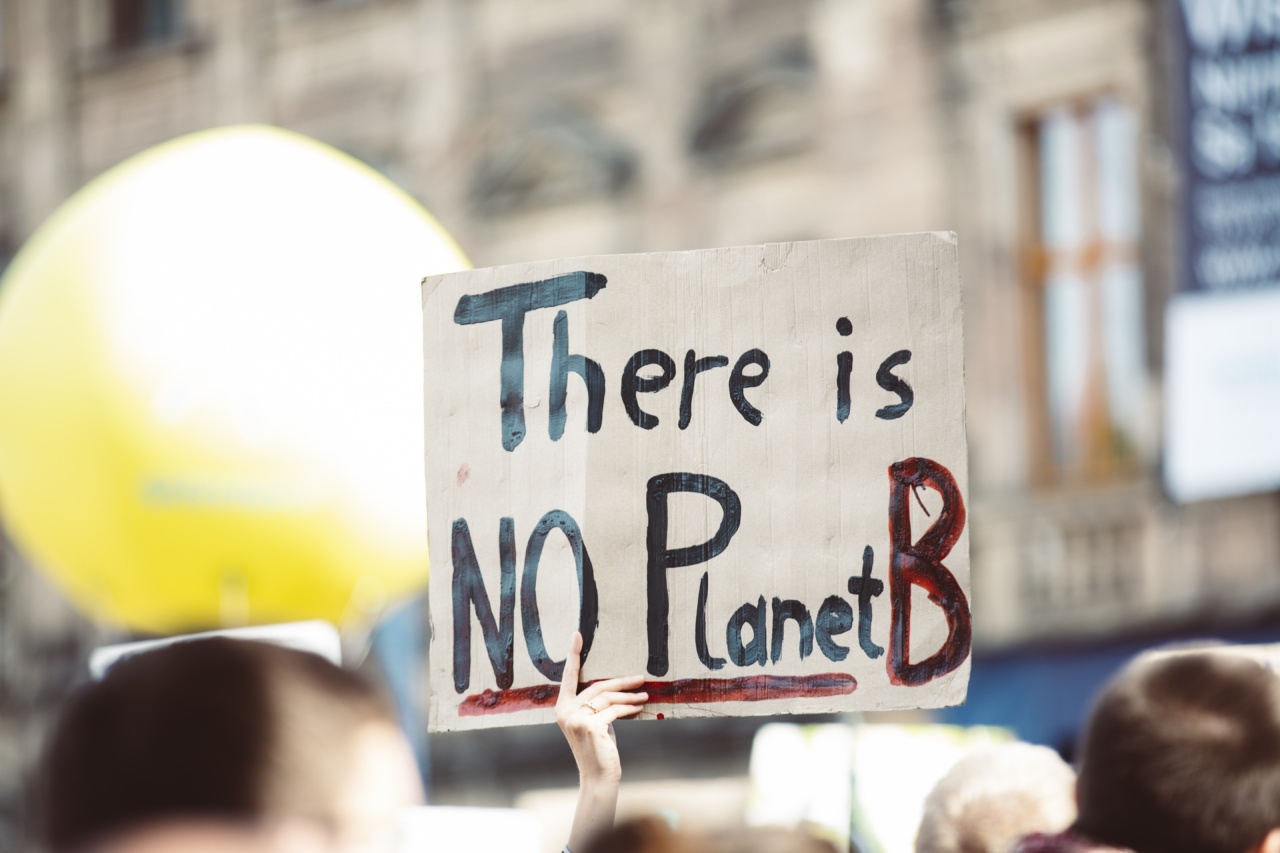Climate change is no longer a distant threat; it is happening right now, and its impact on our health is becoming increasingly evident.
Rising global temperatures, extreme weather events, and changing climate patterns are all contributing to a range of health problems that affect individuals and communities worldwide. In this article, we will explore how climate change is affecting our health in a significant way and discuss the urgent need for action to mitigate and adapt to these changes.
Deteriorating Air Quality
One of the most visible and immediate health impacts of climate change is the deterioration of air quality. As temperatures rise, the concentration of ground-level ozone also increases, leading to smog formation.
Ozone is a harmful pollutant that can cause respiratory problems, trigger asthma attacks, and aggravate other lung conditions. Additionally, higher temperatures can also increase the production of allergenic pollens, exacerbating allergies and respiratory issues.
Extreme Heat and Heat-Related Illnesses
Rising temperatures worldwide are resulting in more frequent and intense heatwaves. Extreme heat poses a significant risk to human health, causing heat-related illnesses such as heat exhaustion and heatstroke.
The elderly, children, and individuals with chronic illnesses are especially vulnerable. Heatwaves can also worsen cardiovascular and respiratory conditions, and in extreme cases, even lead to fatalities. As climate change continues, the frequency and intensity of heatwaves are projected to increase, placing more lives at risk.
Spread of Infectious Diseases
Climate change is altering the habitat and distribution patterns of various disease-carrying organisms, including mosquitoes, ticks, and rodents.
As temperatures rise, these vectors are expanding their range, bringing diseases like malaria, dengue fever, Lyme disease, and hantavirus to regions where they were previously uncommon. Additionally, changing rainfall patterns and increased humidity can create favorable breeding conditions for these disease vectors, further increasing the risk of outbreaks.
The spread of infectious diseases due to climate change poses a significant threat to global health security.
Food and Water Insecurity
Climate change is disrupting agricultural systems and compromising food and water security.
Rising temperatures, changing rainfall patterns, and more frequent extreme weather events, such as floods and droughts, are affecting crop yields and livestock productivity. This leads to food shortages, malnutrition, and an increased risk of foodborne diseases.
Furthermore, compromised water sources due to droughts and contamination from flooding can lead to scarcity of clean water, causing waterborne diseases and hygiene-related health concerns.
Mental Health and Well-being
The impacts of climate change extend beyond physical health and also affect mental health and well-being.
Natural disasters caused or intensified by climate change can result in the loss of homes, livelihoods, and communities, leading to increased stress, anxiety, and depression. The fear and uncertainty associated with climate change can also generate eco-anxiety, a chronic worry about impending environmental disasters. The mental health consequences of climate change are often overlooked but require attention and support.
Displacement and Migration
As climate change continues to render certain areas uninhabitable due to sea-level rise, extreme weather events, or desertification, millions of people are being displaced from their homes.
Involuntary displacement and climate-induced migration can lead to a range of health issues, including increased vulnerability to diseases, lack of access to healthcare, and mental distress. The strain on resources and infrastructure in host communities can also amplify health risks and create humanitarian crises.
Increased Risk of Natural Disasters
Climate change is intensifying the frequency and severity of natural disasters, including hurricanes, floods, wildfires, and storms. These events can cause physical injuries, loss of life, and destruction of critical healthcare infrastructure.
They also disrupt access to medical care, medications, and essential supplies, putting vulnerable populations at increased risk. The long-term impacts of these disasters, such as the contamination of water sources and the destruction of sanitation systems, can lead to prolonged health hazards.
Threats to Biodiversity and Ecosystem Services
Climate change is causing the loss of biodiversity at an alarming rate, with numerous species facing extinction. This loss of biodiversity not only disrupts delicate ecosystems but also affects human health.
Many of our medicines and healthcare products are derived from natural sources, and the decline in biodiversity threatens our ability to discover and develop new treatments. Additionally, intact ecosystems provide critical services such as water purification and disease regulation, which are essential for maintaining human health.
Health Inequities
Climate change exacerbates existing health inequities, disproportionately affecting vulnerable populations including low-income communities, indigenous peoples, and marginalized groups.
These communities often have limited access to healthcare, suffer from higher rates of underlying health conditions, and bear the brunt of environmental degradation. Climate change further widens the health gap, leaving already disadvantaged groups at greater risk of adverse health outcomes.
Children’s Health
Children are particularly susceptible to the health impacts of climate change. They are more vulnerable to extreme heat, air pollution, and waterborne diseases.
Climate-related disruptions, such as natural disasters and displacement, can have long-lasting physical and psychological effects on children, compromising their development and well-being. Protecting children from the health consequences of climate change should be a priority for future generations.
Conclusion
The effects of climate change on our health are undeniable and far-reaching.
From deteriorating air quality and extreme heat to the spread of infectious diseases and displacement, the consequences of a changing climate are impacting our well-being on multiple fronts. Urgent action is needed at all levels, from individual choices to international cooperation, to mitigate climate change and protect human health.
Only by addressing the root causes of climate change can we ensure a safer and healthier future for ourselves and generations to come.































